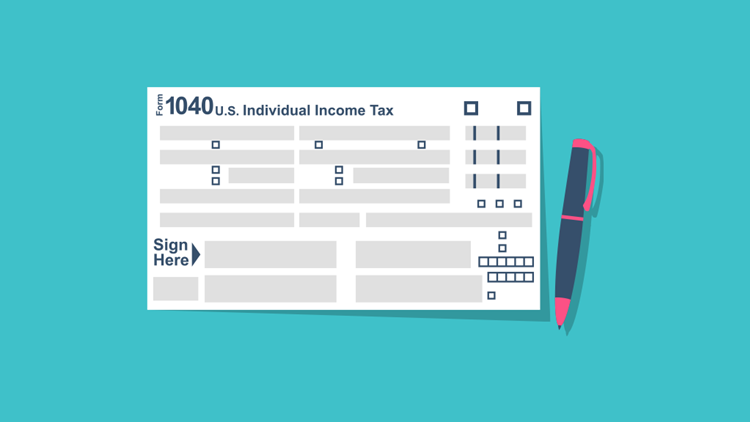IRS Opens Tax Season with Tips for Faster Refunds

It’s official: the gates are open; the race is on. Tax season for 2022 is officially underway.
The IRS kicked off this year’s filing season urging taxpayers to help them get refunds out faster this year by not filing paper tax returns and instead filing electronically.
Last year, tax season didn’t get started until February 12. But the IRS will still need all the extra time it can get; the agency expects more than 160 million income tax returns to be filed for the 2021 tax year—most of them before the April deadline.
For most taxpayers, this year’s deadline is April 18. Because Washington, D.C., Massachusetts and Maine all have state holidays on the traditional deadline day of April 15, this year’s deadline to file and pay tax due is April 19 in Massachusetts and Maine and April 18 everywhere else.
Victims of federally declared disasters may have later deadlines in various locations.
There were several critical changes in the tax law that took effect in 2021, and with the ongoing challenges posed by the pandemic, IRS Commissioner Chuck Rettig says taxpayers should pay extra attention to the process of filling out their income tax returns.
"IRS employees are working hard to deliver a successful 2022 tax season while facing enormous challenges related to the pandemic," Rettig said. "There are important steps people can take to ensure they avoid processing delays and get their tax refund as quickly as possible. We urge people to carefully review their taxes for accuracy before filing. And they should file electronically with direct deposit if at all possible; filing a paper tax return this year means an extended refund delay."
The best-case scenario for the IRS is to get an electronically filed tax return with no math errors or other issues. When those conditions are met, the IRS estimates it can have the refund ready within 21 days of being filed, provided the taxpayer chose direct deposit.
Last year, the average refund was more than $2,800.
"There are simple steps that people can take that will help them navigate this challenging tax season," Rettig said. "Filing electronically and using online resources instead of calling are just some of the steps that can help people avoid delays."
"IRS employees will do everything possible with the available resources to serve taxpayers this year," Rettig said. "We will work hard to deliver refunds quickly, serve as many people as possible and work to catch up on past tax returns affected by the pandemic. The IRS thanks you for filing your taxes, a critical part of helping our great nation."
IRS Tips for Faster Refunds
Let’s face it: when the IRS has problems, taxpayers have problems. And if things go smoothly for the IRS, likewise they’ll likely go well for the taxpayer. So here are a few areas where the taxpayer can actually make a difference in how quickly—or slowly—they get their refund.
E-file and avoid paper returns: The IRS is still processing problem paper returns from last tax season, so adding another paper return to the pile is counterproductive for a quick refund. As we mentioned, file electronically and choose direct deposit to avoid a paper return and a long-delayed refund. Best bets for speed: a trusted tax professional for filing correctly and quickly or tax software for speed and convenience.
Extra care for EIP and advance Child Tax Credit Recipients: The IRS says people who received a third Economic Impact Payment (EIP) or advance Child Tax Credit in 2021 should use extra caution when filling out their income taxes. Taxpayers should take their time to make sure the amounts they received during the course of the tax year are entered correctly on the return. An incorrect return—whether due to faulty figuring or incorrect entries—will have to be reviewed by an IRS staffer, taking valuable time and delaying any possible refund. Some help is on the way, though; the IRS is mailing special letters about the stimulus payments and advance Child Tax Credit payment amounts. Taxpayers can also use their Online Account on IRS.gov to find the amount of their payments.
Some refunds will be later than others: The IRS is barred by federal law from issuing those refunds that result from the Earned Income Tax Credit or the Additional Child Tax Credit before the middle of February. Even if a return claiming one of those credits is filed now, the refund will be held until it can be lawfully paid out. The extra time is provided to help the IRS verify the claims and stop fraudulent refunds.
Avoid phone delays; get help online: Demand for telephone support is estimated to be above last season’s record-breaking call totals, so avoid wait times and research questions on IRS.gov instead. Check the IRS website for refund information and answers to tax questions. Taxpayers can also clear up their questions by setting up an Online Account on IRS.gov., giving them quick access to their information.
The IRS is always open: Use IRS.gov to get answers to tax questions, to check a return status or pay a tax bill. No appointment needed and no wait time. The IRS’ online tools and other resources are available 24 hours a day.
Source: IR-2022-18




